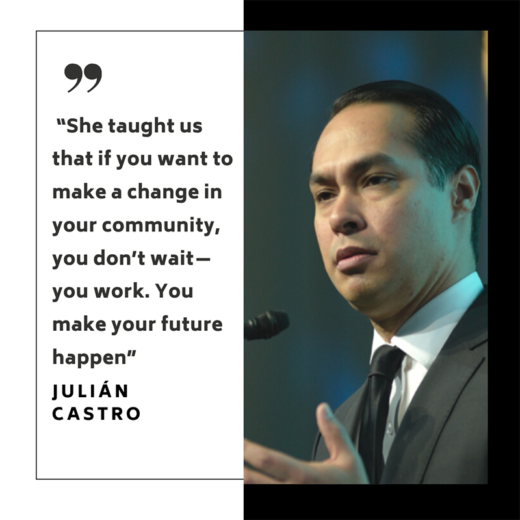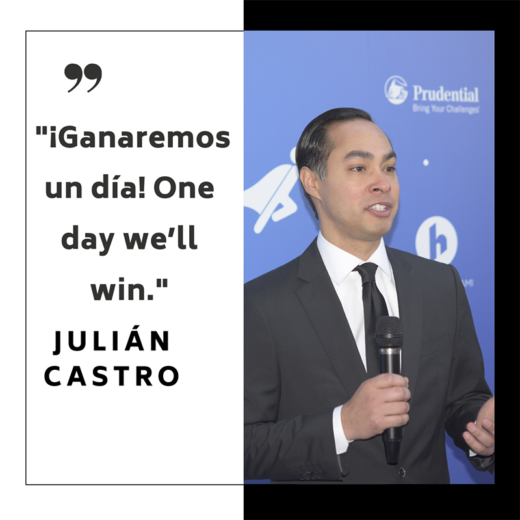Words by Jessica Rodriguez
Until 2019, the only time we had imagined a Latino president was on reruns of The West Wing courtesy of OG actor Jimmy Smits. That is until Julián Castro, a real life person, took up the task of running for the highest office of the land.

It’s no mistake that Castro aspired to public office. But his first taste of politics came when he ran for student Senate at Stanford and won. That appetite grew thanks to a summer as a White House Intern under President Bill Clinton. In 1996 Castro took his political science degree and headed straight to Harvard Law School where he graduated with a JD in 2000. He went on to work for a local Texas firm but he had his sights set elsewhere.
In fact Castro’s journey to become the 46th President of the United States–which he declared in both English and Spanish–began the moment Castro took his first public position in 2001 at just 26 years old. That year he was the youngest person ever elected to the San Antonio City Council. Castro then turned his sights towards the Mayor office and ran twice before winning in 2009. In his five years as Mayor he established programs that offered college guidance and expanded pre-kindergarten programs throughout the city.
The young upstart was quickly pegged as a rising star thanks to his youth, charisma and common sense. Castro rose to national prominence when he delivered the keynote during the Democratic National Convention in 2012. He would go on to secure a cabinet position as the Director of Housing and Urban Development in 2014 under Obama and made history again as the youngest among his colleagues. Under his tenure HUD helped rebuild communities hit by natural disasters thanks to a $1 billion National Disaster Resilience Competition. He did a good enough job that Hillary Clinton considered him a potential running mate for her 2016 ticket.

Castro credits this ethos and grit to Rosie and his grandmother Victoria. “She taught us that if you want to make a change in your community, you don’t wait— you work. You make your future happen,” he said on his campaign website.
It was his frankness and no-nonsense attitude that gained him fans. Whether it was acknowledging he wasn’t fluent in Spanish or releasing policy positions regularly rather than slinging mud.
Despite ending his bid for the White House at the start of 2020, Castro still made history. He brought a level of gumption, earnestness and concrete ideas for change. Castro’s parting words to his supporters were simple and poignant: “¡Ganaremos un día!” One day we’ll win. Thanks to Julián Castro we are one step closer.
